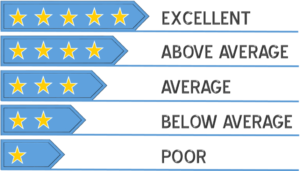What is Flexible Leadership Being flexible is the capability of readily changing (Merriam-Webster, n.d.)1. In…
Psychological Tests – Why do they matter in Executive Search?
Filling in an Executive level position is a critical, risky and expensive process. To minimize the turnover, some companies use psychological tests to ensure that potential candidates are suitable for the position. These are used to calibrate the continued suitability of employees who have been with the company for a long time as well. But what role do psychological tests play in the hiring process?
According to a New York HR consultant, Nat Stoddard, the price of hiring an unsuitable CEO of a big cap company is more than US$50 million. This is not only based on salary and severance outlay, but also on lost productivity and opportunities because it takes a long time (more than a year at least) to remove and hire another CEO.
This is the reason for almost three quarters of the 516 companies to incorporate psychological assessments in the hiring process based on a study by the Aberdeen Group in Boston.
Psychological testing helps head hunters make more informed hiring decisions. Many companies consult with third party companies to provide and assess these tests to keep the tests unbiased and protected against lawsuits. Psychological testing is used to measure a number of attributes like intelligence, critical reasoning, motivation and personality profile. It also determines the ability of potential candidates to work under stress and to assess how the prospective employees handle the job effectively under those conditions.
In comparison to face-to-face interview, these tests are objective. Despite the efforts of the recruiters to assess skills and experience fairly and accurately, there are times when they use their instincts regarding aligned values.
Another benefit of using psychological tests is to screen large amounts of candidates at the onset of the recruitment process that could drastically reduce the hiring manager’s workload because of the smaller pool of suitable candidates to be processed.
CARRHURE aims to identify free online assessment tools available across the globe as a valuable reference for psychologists, mental health professionals, consultants, educators, students and patients. The list may not be exhaustive, but we assure you that we will present our best selections among hundreds of tests, with neutrality and objectivity, in order to help people and give a sense of their crucial role in personal development.
A. Criteria
Each test is tested, reviewed and evaluated by our team based on the criteria below:
- Accessibility. The degree of availability of the assessment tool to as many people as possible. This also covers how easily the tests and its results are accessed as well as the coverage of the results.
- Design/Ergonomic Layout. The format and design of the online assessment tool. This also includes navigation and content of the website.
- Accuracy of the Questionnaire. The quality of the questions or instructions presented in the assessment tools. Appropriateness of the questions is also considered in this criterion.
- Quality of the Report Generated. This refers to the accuracy of the test results in general. This will show how reliable the report is.
- Language. The terms and vocabularies used in the test. This refers to how understandable the instructions, questionnaire and test results are.
*Please take note that the test takers are non-mental health care professionals. This site aims to present the point of view of a typical person with no psychology background and has an interest to know more about themselves.
B. Methodologies
CARRHURE assigns a team who will concentrate on searching and collecting viable links to the free online assessment tools. The methodologies will be explained by the illustration below:

C. Scoring
CARRHURE developed a scoring system that is used to evaluate assessment tools by criterion and by its overall rating. For the benefit of the test takers, the rates and its significance are presented in the tables below:


The essential requirements are used to rate the test by criterion from 1 to 5 (5 for ‘exceeding minimum requirements’ and 1 for having a ‘fatal gap’). After the essential requirements are rated, that’s when the overall rating is determined by the number of stars (5 being rated as ‘excellent’ and 1 being rated as ‘poor’).
Disclaimer:
The links on our free assessment tools are intended for educational purposes only. The self-administered psychological assessment tests may help increase self-awareness of a person’s experience, but will not provide a well-informed recommendation about what should be done to address those experiences.
The test takers should accept and understand that there may be errors or inaccuracies in these tests, and that the company is not liable for any errors, inaccuracies or for the use or misuse of these assessment tools.
This should not be constituted as any type of diagnosis or healthcare recommendation. For any suspected psychological issues, always consult a qualified health care professional.
To view the results of the evaluation and the links to the free assessment tools. Click here.
Do you find this article informative? What’s your take on Psychological tests in Executive Search? Let us know your thoughts in the comments section below.



